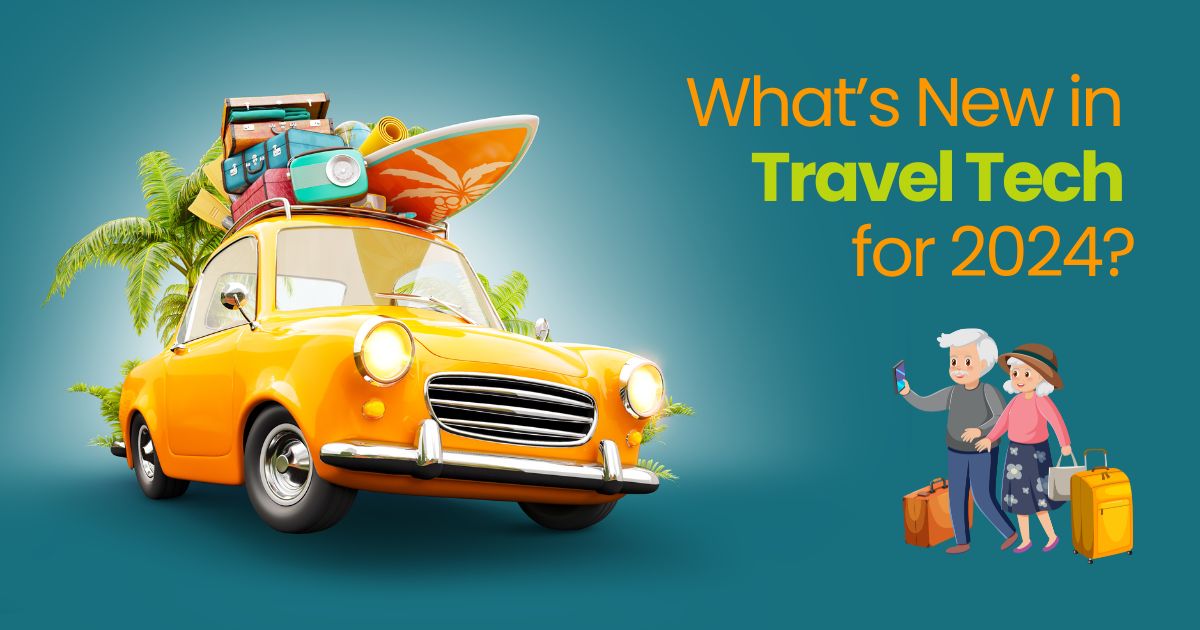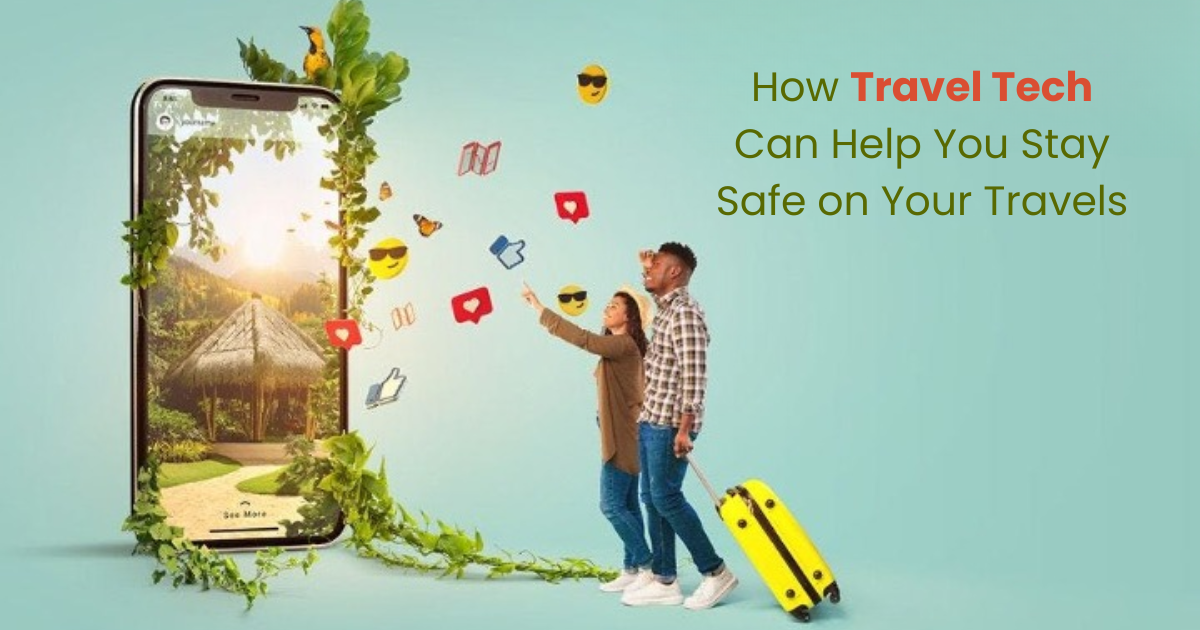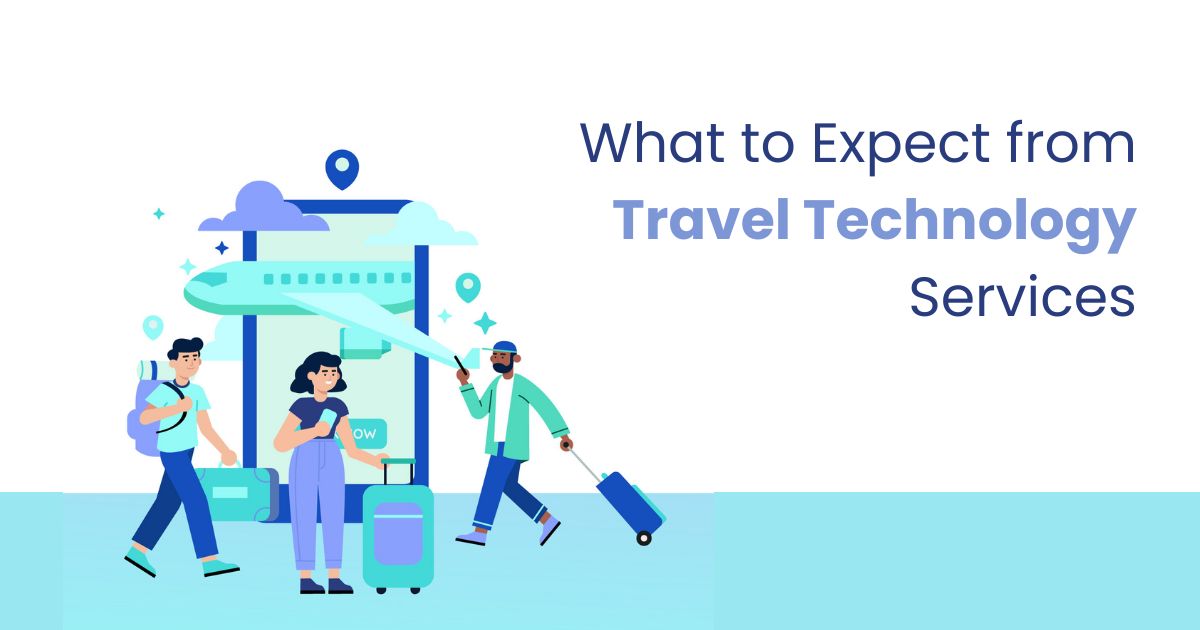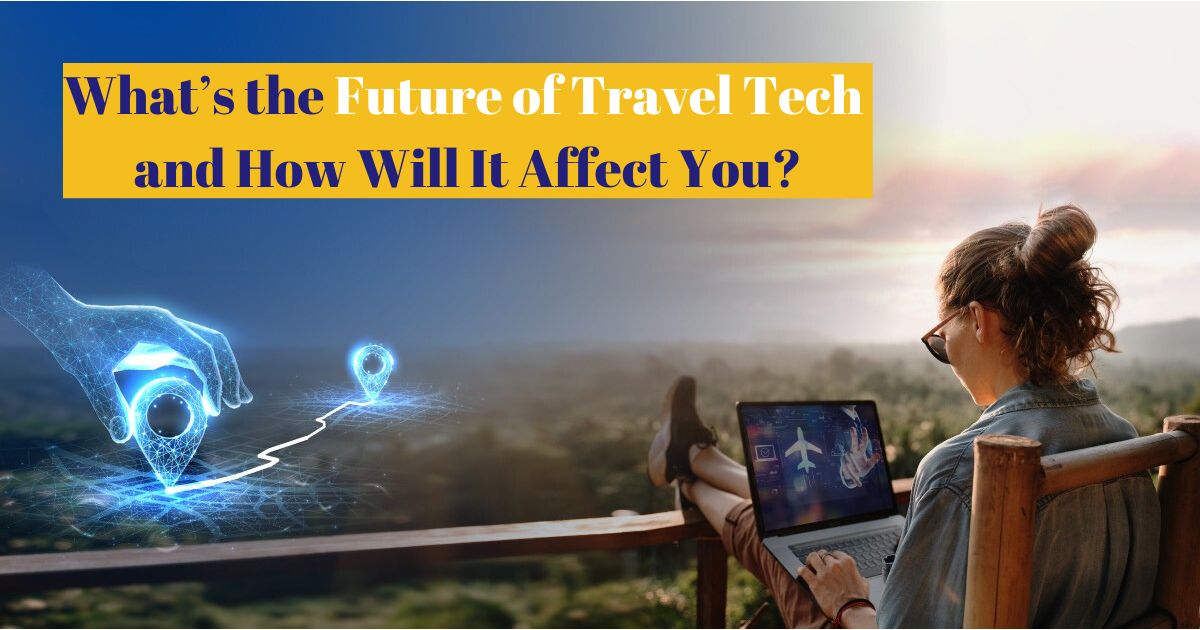The travel industry has always been one of the most dynamic sectors, constantly evolving to meet the changing demands of travelers and advancements in technology. In 2024, travel technology (travel tech) is once again at the forefront of innovation, bringing new opportunities for businesses and travelers alike. From artificial intelligence (AI) integration to immersive experiences like augmented reality (AR) and virtual reality (VR), the travel industry is being redefined by cutting-edge solutions.
Travel Technology Solutions: Enhancing Your Travel Journey with Advanced Technology SolutionsIn this article, we will explore the latest travel tech trends for 2024, their impact on travelers, and how businesses in the travel sector can adapt to these innovations. Whether you are a traveler seeking more convenience or a business looking to enhance your services, understanding these technological advancements is essential for staying competitive in this rapidly changing landscape.
Artificial Intelligence (AI) in Travel
AI-Powered Personalization
In 2024, artificial intelligence has become the backbone of personalization in travel services. AI-driven algorithms analyze large datasets, such as customer preferences, past behavior, and real-time conditions, to offer customized travel experiences. Travel companies now use AI to provide personalized itineraries, flight and accommodation suggestions, and real-time recommendations.
For instance, AI can identify a traveler’s preferences for certain types of hotels, transportation, or activities and then tailor search results to match those preferences, creating a more efficient booking experience. Personalized suggestions allow for more convenience and satisfaction, ensuring travelers can find their ideal trip without sifting through endless options.
AI-Driven Pricing Optimization
AI is also transforming how pricing is structured in the travel industry. Dynamic pricing models, powered by AI, enable travel companies to adjust prices in real time based on supply and demand. Whether it’s for flights, hotels, or rental cars, AI pricing algorithms can consider various factors like competitor pricing, traveler behavior, booking trends, and economic conditions to ensure both competitiveness and profitability.
AI-Powered Chatbots and Virtual Assistants
The use of AI-powered chatbots in customer service has expanded rapidly. These virtual assistants are capable of handling inquiries, booking requests, and providing recommendations 24/7. By 2024, these chatbots have become even more sophisticated, offering faster and more intuitive responses to travelers’ needs. From flight rescheduling to hotel check-ins, AI-driven chatbots reduce the need for human intervention, streamlining customer service processes and reducing wait times.
Augmented Reality (AR) and Virtual Reality (VR) in Tourism
AR-Enhanced Travel Experiences
Augmented reality is revolutionizing the way travelers explore destinations. In 2024, AR applications allow travelers to experience destinations in immersive ways before they even set foot in them. From AR-enabled city guides that overlay information onto real-world environments to interactive historical tours, AR enhances the travel experience by adding layers of digital information.
For example, travelers can use their smartphones or AR glasses to see visual overlays of historical facts, restaurant reviews, or navigation prompts as they explore cities. AR also helps with language translation and real-time interactive maps, offering travelers a seamless experience.
Virtual Reality (VR) for Travel Previews
Virtual reality has made great strides in the tourism sector. VR platforms in 2024 enable travelers to “preview” destinations and accommodations before making a booking. Travel agencies and hospitality providers offer 360-degree VR tours of hotel rooms, cruise cabins, and tourist attractions, allowing customers to get a realistic sense of their potential experiences.
This helps travelers make informed decisions, particularly when choosing accommodations or destinations that are unfamiliar to them. VR can also create immersive experiences for travel marketing, helping businesses stand out in a competitive marketplace.
Sustainable Travel Technologies
Eco-Friendly Innovations
Sustainability is now a core focus of travel technology in 2024. With the increasing awareness of environmental issues, more travelers are seeking eco-friendly options, and the travel industry is responding with new technologies to reduce its carbon footprint.
Electric planes and hybrid transportation options are emerging as viable alternatives to traditional fuel-powered vehicles. Companies are also investing in biofuel technologies and energy-efficient aircraft. Carbon offset programs, supported by blockchain technology, provide more transparency and accuracy in tracking emissions and enabling travelers to contribute to sustainable travel initiatives.
Smart Building Technologies for Hotels
Smart hotels are embracing green technologies to minimize their environmental impact. Automation systems control energy consumption by adjusting lighting, heating, and cooling based on occupancy levels. Additionally, water-saving technologies and waste reduction programs are becoming common in 2024, helping hotels reduce their ecological footprint while appealing to environmentally conscious guests.
Biometric Identification and Contactless Travel
Biometric Check-ins and Security
Biometric identification has transformed how travelers move through airports and border controls. Facial recognition, fingerprint scanning, and iris scans are now integral to ensuring security and efficiency in travel. By 2024, most international airports have adopted biometric check-in systems, reducing the need for traditional passports or boarding passes. This technology speeds up the check-in and boarding processes while enhancing security through accurate identity verification.
Contactless Payments and Services
In the post-pandemic world, contactless technology has become a staple of the travel industry. Travelers can now use contactless payment methods for everything from booking hotels and flights to paying for meals and transportation. Contactless services, such as mobile check-ins at hotels and digital boarding passes, create a more seamless and hygienic experience. In 2024, this trend has been further refined with enhanced mobile payment platforms and blockchain-based payment systems that offer secure and transparent transactions.
The Rise of Travel Super Apps
All-in-One Travel Solutions
Travel super apps have emerged as a one-stop solution for all travel needs. These apps integrate multiple services, including flight bookings, hotel reservations, ride-hailing, dining, and activity recommendations, all in one platform. Instead of using several different apps, travelers can now manage their entire trip through a single app, saving time and effort.
For instance, apps like Grab, Uber, or WeChat are evolving into travel super apps in 2024, offering not just transport services but also curated travel experiences, food delivery, accommodation booking, and even currency exchange services. Travel super apps simplify the entire travel experience, offering convenience and better service integration.
Advanced Data Analytics and Personalization
Predictive Analytics for Seamless Travel
Data analytics has always played a significant role in travel, but in 2024, the focus has shifted toward predictive analytics. Travel companies use machine learning algorithms to analyze data patterns and forecast future travel trends. Predictive analytics is now used to determine the best times to travel, anticipate flight delays, or suggest alternative routes, making travel more efficient.
For travelers, this means receiving personalized recommendations based on historical data and real-time information. Whether it’s suggesting the ideal destination or finding alternative travel arrangements, predictive analytics empowers travelers with valuable insights to make informed decisions.
Blockchain in Travel
Transparent and Secure Transactions
Blockchain technology is rapidly gaining traction in the travel sector, particularly for its ability to offer secure, decentralized, and transparent transactions. In 2024, blockchain is being used for everything from booking accommodations to tracking luggage and issuing digital identities.
One key use of blockchain in travel is for secure payments. Blockchain-based currencies and smart contracts offer transparency in pricing and eliminate the need for intermediaries, resulting in lower costs for travelers. Additionally, blockchain is being utilized to securely store and share customer data, providing more control and privacy for users.
Smart Airports and Autonomous Transportation
Airport Automation and Robotics
Smart airports have become a reality in 2024, with the implementation of robotics and automation to streamline operations. Robots now assist with baggage handling, security checks, and customer service. Autonomous vehicles within airports help transport passengers from terminals to boarding gates, enhancing efficiency.
Airports are also leveraging IoT (Internet of Things) to monitor and manage airport operations in real time. From smart cameras to predictive maintenance of airport infrastructure, IoT technologies enable smoother operations and fewer disruptions.
Autonomous Vehicles for Ground Transportation
Autonomous vehicles have begun reshaping ground transportation in 2024. Self-driving cars and buses now offer travelers convenient and efficient transportation to and from airports, hotels, and tourist destinations. With advancements in AI and sensor technology, these vehicles can navigate complex traffic conditions, providing a safer and more efficient mode of travel.
Internet of Things (IoT) for Seamless Connectivity
Connected Devices for Travelers
The Internet of Things has become an essential part of the travel tech ecosystem. In 2024, travelers are surrounded by IoT-enabled devices that provide seamless connectivity throughout their journey. From smart luggage equipped with GPS trackers to smart hotel rooms that adjust settings based on guests’ preferences, IoT enhances the travel experience by creating a connected environment.
IoT devices also enable real-time updates on travel conditions, such as flight delays, gate changes, or traffic congestion, allowing travelers to adjust their plans accordingly.
Cybersecurity in Travel
Protecting Traveler Data
As travel becomes more digitized, cybersecurity has emerged as a critical concern for both businesses and travelers. In 2024, travel companies are investing heavily in cybersecurity solutions to protect sensitive customer data. With the increase in online transactions and the use of personal information, cybercriminals are constantly finding new ways to exploit vulnerabilities in travel systems.
Companies are now using advanced encryption methods, multi-factor authentication, and AI-powered threat detection systems to safeguard traveler information. This not only protects customers but also enhances the overall trust and reputation of travel businesses.
AI-Enhanced Customer Support
24/7 Assistance with AI-Driven Systems
Customer support in the travel industry has been transformed by AI technologies in 2024. AI-powered virtual assistants and customer support bots provide travelers with instant assistance, reducing wait times and improving satisfaction. These systems can answer common queries, resolve issues, and provide updates on flight schedules, hotel bookings, and transportation options, all in real-time.
For more complex problems, AI-driven support systems can quickly transfer cases to human agents, ensuring a seamless transition and faster resolution.
Conclusion
The travel technology landscape in 2024 is characterized by innovation, connectivity, and personalization. AI, AR, VR, blockchain, and IoT are driving significant transformations in how travelers plan, experience, and enjoy their journeys. These technologies not only offer convenience but also enhance security, sustainability, and customer satisfaction.
As travel companies embrace these trends, they are better equipped to meet the demands of modern travelers who expect seamless, personalized, and eco-friendly experiences. Travelers, in turn, benefit from the increased flexibility, security, and immersive experiences these technologies provide.
The future of travel tech is bright, and both businesses and travelers must stay ahead of the curve by embracing the innovations that are shaping the industry. In a world where technology and travel are increasingly intertwined, 2024 promises to be a year of groundbreaking advancements that will redefine how we explore the world.










